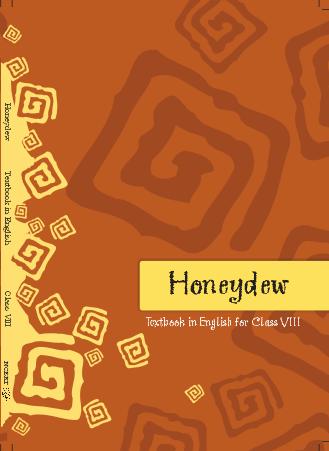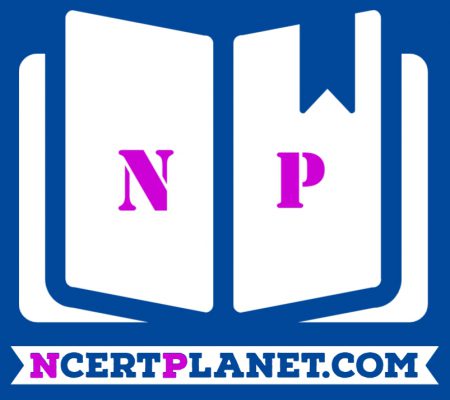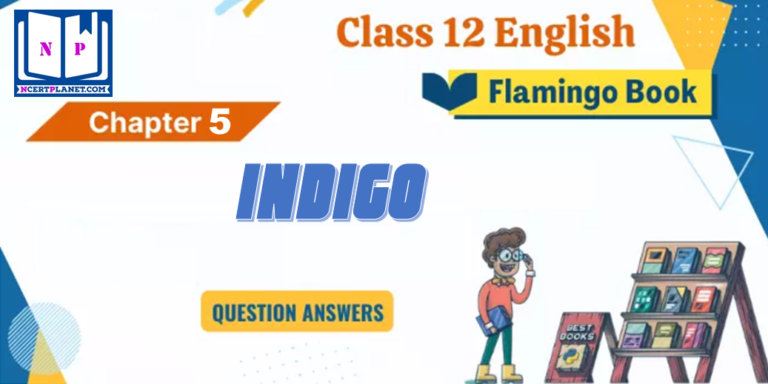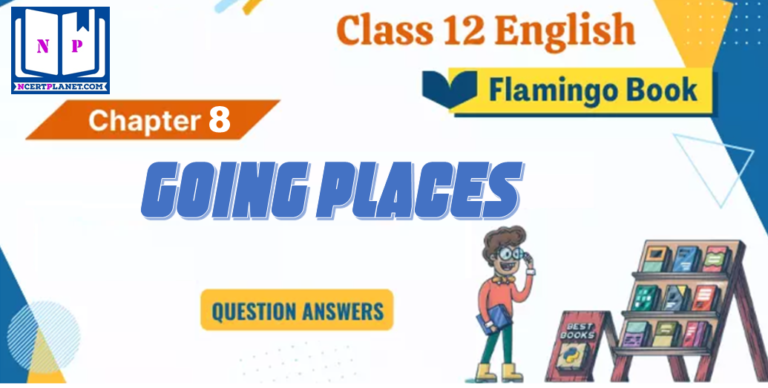Class 8 - English - Honeydew
Chapter 7 - A Visit to Cambridge

Top Block 1
Comprehension Check (Page 104)
Which is the right sentence?
Questions:
1. “Cambridge was my metaphor for England.” To the writer
(i) Cambridge was a reputed university in England.
(ii) England was famous for Cambridge.
(iii) Cambridge was the real England.
2. The writer phoned Stephen Hawking’s house
(i) From the nearest phone booth.
(ii) From outside a phone booth.
(iii) From inside a phone booth.
3. Every time he spoke to the scientist, the writer felt guilty because
(i) He wasn’t sure what he wanted to ask.
(ii) He forced the scientist to use his voice synthesiser.
(iii) He was face to face with a legend.
4. “I felt a huge relief…in the possibilities of my body.” In the given context, the highlighted words refer to
(i) Shifting in the wheelchair, turning the wrist.
(ii) Standing up, walking.
(iii) Speaking, writing.
Answers:
- (ii) England was famous for Cambridge.
- (i) From the nearest phone-booth.
- (ii) He forced the scientist to use his voice synthesiser.
- (i) Shifting in the wheelchair, turning the wrist.
Working With the Text (Page 104)
Answer the following Questions.
Question 1:
- Did the prospect of meeting Stephen Hawking make the writer nervous? If so, why?
- Did he at the same time feel very excited? If so, why?
- The writer felt nervous because he was doubtful whether he would be granted the interview.
- He felt excited at the same time because he had been there to see Prof. Hawking for half an hour.
Question 2: Guess the first question put to the scientist by the writer.
Answer:
The writer’s first question might be about Hawking’s disability and how he had accepted it.
Question 3: Stephen Hawking said, “I’ve had no choice.” Does the writer think there was a choice? What was it?
Answer:
Living creatively with the reality of his weakening body was a choice.
Question 4: “I could feel his anguish.” What could be the anguish?
Answer:
Prof. Hawking’s mind was full of great ideas but he couldn’t speak them out clearly and forcefully.
Question 5: What endeared the scientist to the writer so that he said he was looking at one of the most beautiful men in the world?
Answer:
Prof. Hawking’s one-way smile.
Question 6: Read aloud the description of ‘the beautiful’ man. Which is the most beautiful sentence in the description?
Answer: The line is “before you like a lantern whose walls are worn so thin, you glimpse only the light inside, is the incandescence of a man”.
Question 7:
- If ‘the lantern’ is the man, what would its ‘walls’ be?
- What is housed within the thin walls?
- What general conclusion does the writer draw from this comparison?
- The walls of the lantern in Hawking’s case were his skeleton like physical structure.
- The glow of the eternal soul was housed within the thin walls of his body,
- The writer draws conclusion that the eternal soul is more important than the body.
Question 8: What is the scientist’s message for the disabled?
Answer:
Prof. Hawking’s message for the disabled is that they should concentrate on what they are good at. It is foolish to try to copy the normal people.
Question 9: Why does the writer refer to the guitar incident? Which idea does it support?
Answer:
The writer spent many years trying to play a big Spanish guitar. One night he loosened the strings joyfully. This incident supports the idea that the disabled people should practise only what they are good at.
Question 10: The writer expresses his great gratitude to Stephen Hawking. What is the gratitude for?
Answer:
The author felt much inspired after meeting with Stephen Hawking. Therefore he felt grateful to him.
Question 11: Complete the following sentences taking their appropriate parts from both the boxes below.
- There was his assistant on the line…
- You get fed up with people asking you to be brave….
- There he was ………
- You look at his eyes which can speak, ……..
- It doesn’t do much good to know…
A
- tapping at a little switch in his hand
- and I told him
- that there are people
- as if you have a courage account
- and they are saying something huge and urgent
B
- trying to find the words on his computer.
- I had come in a wheelchair from India.
- on which you are too lazy to draw a cheque.
- smiling with admiration to see you breathing still.
- it is hard to tell what.
Answer:
- There was his assistant on the line and I told him I had come in a wheelchair from India.
- You get fed up with people asking you to be brave, as if you have a courage account on which you are too
lazy to draw a cheque. - There he was tapping at a little switch in his hand, trying to find the words on his computer.
- You look at his eyes which can speak and they are saying something huge and urgent it is hard to tell what.
- It doesn’t do much good to know that there are people smiling with admiration to see you breathing still.
Working With Language (Page 106)
Question 1: Fill in the blanks in the sentences below using the appropriate forms of the words given in the following box.
guide , succeed , chair , travel, pale , draw ,true
- I met a_________ from an antique land.
- I need special_________ in mathematics. I can’t count the number of times I have failed in the subject.
- The guide called Stephen Hawking a worthy__________ to Issac Newton.
- His other problems ________ into insignificance beside this unforeseen mishap.
- The meeting was by the youngest member of the board.
- Some people say “yours________ ’when they informally refer to themselves.
- I wish it had been a________ We would have been spared the noise of celebrations, at least.
- traveller
- guidance
- successor
- paled
- chaired
- truly
- drawn
Question 2: Look at the following words.
walk stick
Can you create a meaningful phrase using both these words? (It is simple. Add ing to the verb and use it before the noun. Put an article at the beginning.) …a walking stick
Now make six such phrases using the words given in the box.
read / session smile / face revolve / chair
walk / tour dance / doll win / chance
Answer:
- a reading session
- a smiling face
- a revolving chair
- a walking tour
- a dancing doll
- a winning chance
Question 3: Use all or both in the blanks. Tell your partner why you chose one or the other.
- He has two brothers. _________are lawyers.
- More than ten persons called. _________ of them wanted to see you.
- They_________cheered the team.
- _________ her parents are teachers.
- How much have you got? Give me_____ of it.
Answer:
(i) Both (ii) All (iii) all (iv) Both (v) all
Question 4: Complete each sentence using the right form of the adjective given in brackets,
- My friend has one of the cars on the road, (fast)
- This is the _________ story I have ever read, (interesting)
- What you are doing now is_________ than what you did yesterday, (easy)
- Ramesh and his wife are both________ (short)
- He arrived________ as usual. Even the chief guest came________than he did. (late, early)
Answer:
- fastest
- most interesting
- easier
- short
- late, earlier
Speaking and Writing (Page 107)
Question 1: Say the following words with correct stress. Pronounce the parts given in colour loudly and clearly.
| Camel | Balloon |
| Decent | Opinion |
| fearless | enormous |
| careful | fulfil |
| father | together |
| govern | degree |
| bottle | before |
(i) In a word having more than one syllable, the stressed syllable is the one that is more prominent than the other syllable(s)
(ii) A word has as many syllables as it has vowels.
mannar (two syllables)
(iii) The mark (‘) indicates that the first syllable in ’manner’ is more prominent than the other.
Answer:
Attempt yourself.
Answer: Attempt yourself.
Question 3: Writing a notice for the School Notice Board.
Step 1
Discuss why notices are put up on the notice board.
What kinds of “notices’ have you lately seen on the board?
How is a notice different from a letter or a descriptive paragraph?
Step 2
Suppose you have lost or found something on the campus.
What have you lost or found?
You want to write a notice about it. If you have lost something, you want it restored to you in case someone has found it. If you have found something, you want to return it to its owner.
Step 3
Write a few lines describing the object you have lost or found. Mention the purpose of the notice in clear terms. Also write your name, class, section and date.
Step 4
Let one member of each group read aloud the notice to the entire class. Compare your notice with the other notices, and make changes, if necessary, with the help of the teacher.
Or
- Imagine that you are a journalist.
- You have been asked to interview the president of the village panchayat.
- Write eight to ten questions you wish to ask.
- The questions should elicit comments as well as plans regarding water and electricity, cleanliness and school education in the village.

The questions that I would ask the president of the Village Panchayat:
1. What steps will you take for the development of education in your area?
2. What will you do for health facilities?
3. What will you do for roads?
4. What will you do for civil amenities?
5. How will you improve agriculture of your village?
6. What will you do for farmers?
7. What do you plan for female child promotion?
Mddle block 1
MORE QUESTIONS SOLVED
I. SHORT ANSWER TYPE QUESTIONS
Question 1: Who is Stephen Hawking?
Answer:
Stephen Hawking is a great scientist, an astrophysicist. But he is disabled. He has written the book ‘A Brief History of Time’. He can express himself only through a computer.
Question 2: What took the author Firdaus to England? Why did he wish to see Hawking?
Answer:
Firdaus Kanga visited Britain in order to write a book about his travels. He himself could move only in a wheel-chair. On the advice of his guide, Kanga planned to meet the most brilliant and completely paralysed astrophysicist (Hawking) in Cambridge.
Question 3: How did Kanga fix the interview with Hawking?
Answer:
Kanga phoned Hawking and requested the scientist’s assistant to arrange the interview. He asked for ten minutes but he got half an hour.
Question 4: What advice do people usually give to the disabled? Was Hawking brave by choice?
Answer:
The people generally advise the disabled to be brave. Hawking admitted truthfully that he hadn’t been brave. In fact, he had had no choice.
Question 5: What advice does the scientist give to the handicapped?
Answer:
He advises the disabled people to concentrate on what they are good at. They should not try to copy the normal people.
II. LONG ANSWER TYPE QUESTIONS
Question 1: Write about Stephen Hawking and Firdaus Kanga.
Answer:
Both of them are disabled people. Stephen Hawking is one of the greatest scientists of our time. He suffers from paralysis that confines him to a wheelchair, and allows him to ‘speak’ only by punching buttons on a computer, which speaks for him in a machine like voice.
Firdaus Kanga is a writer and journalist. He lives and works in Mumbai. He was born with ‘brittle bones’ that tended to break easily when he was a child. Like Hawking, Kanga moves around in a wheelchair.
Question 2: Why did the writer feel guilty talking to Stephen Hawking?
Answer:
The writer felt guilty every time he spoke to Stephen Hawking because by doing this he forced him to respond. There he (Hawking) was, tapping at the little switch in his hand, trying to find the words on his computer with the only bit of movement left to him, his long, pale fingers. His eyes would often shut in frustrated exhaustion. The writer could feel his anguish but he had no option. He had gone to his house to talk to him on certain points.



